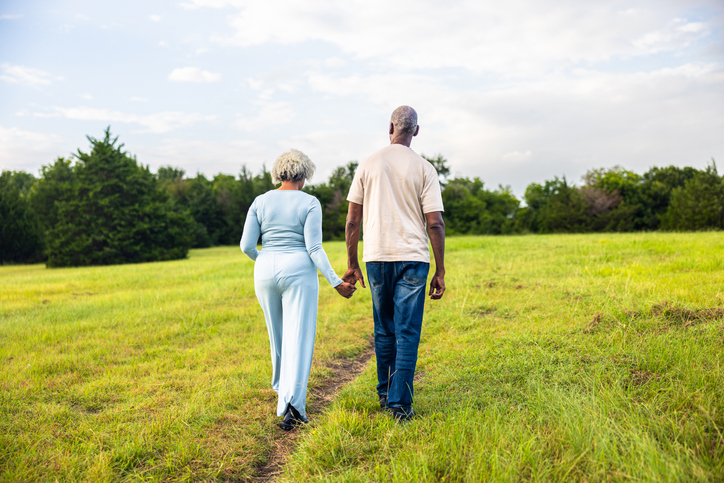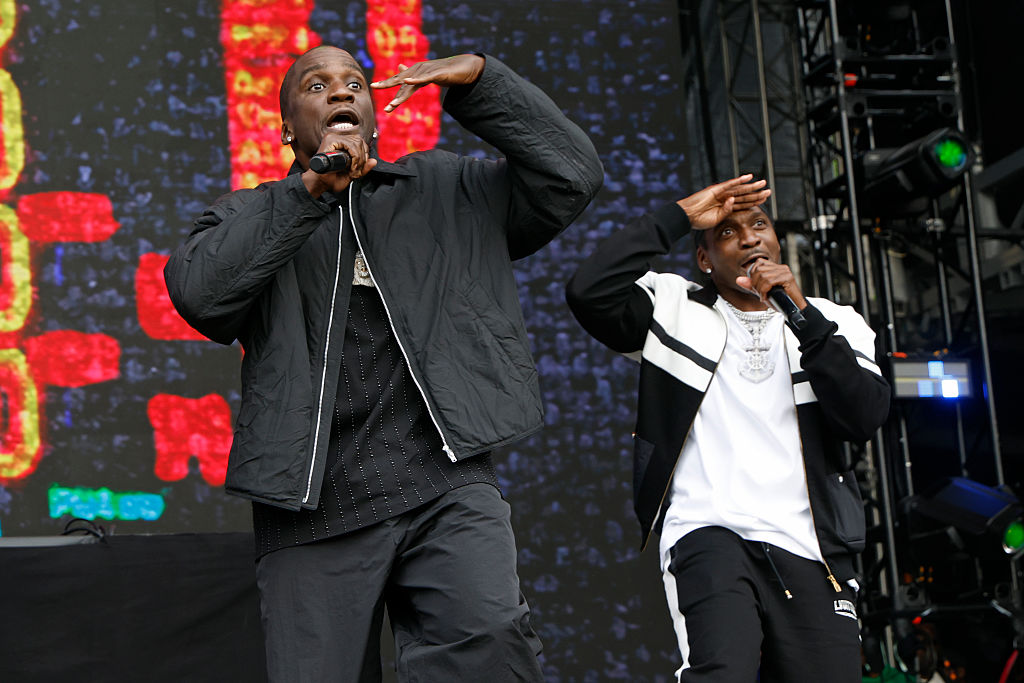December 1 marks World AIDS Day and the beginning of HIV Awareness Month.
On the first day of the 12th month each year, people across the globe observe World AIDS Day, uniting in the fight against HIV, showing support for people living with the disease, and remembering those who have died from an HIV-related cause. Approximately 37.6 million people live with HIV worldwide, and approximately 1.2 million live in the U.S. Among those living with HIV, Black people have the highest infection rates in the nation, accounting for over 42% of those living and dying with HIV and AIDS in America.
MORE: World AIDS Day Reminds Us To Press Forward In The Fight To End The HIV/AIDS Epidemic
While this deadly epidemic continues to affect the entire world, it has hit especially hard in the Black community. According to the CDC’s 2019 reporting, 40% of people living with HIV in the U.S. are Black, despite making up only 13% of the U.S. population. With several factors playing into the disproportionate impact of HIV among Black Americans (racism, systemic inequities, etc.), it is especially crucial for us to take action.
The most impacted are gay and bisexual men, followed by heterosexual women, with the lifetime risk of HIV diagnosis among Black women being 1 in 48 vs. 1 in 880 in white women.
MORE: Don’t Believe The Hype: Seven HIV/AIDS Myths That Have Been Debunked
It’s been more than 40 years since the first cases of what became known as AIDS was officially reported. Over these last few decades, much work has been done in advocacy, healthcare innovation, and education to help more people prevent and treat an HIV+ diagnosis and live a better quality of life if they are HIV+. Despite those promising inroads, the stigma associated with being HIV+ impacts those affected. The belief that only certain groups of people can get infected, being morally judged for taking steps to prevent HIV transmission, and other stigmas create mental and emotional issues for those living with HIV.
As much as it is a day for taking action, World AIDS Day is also a day of remembering and celebrating the impact of those who we have lost along the way. Since first coming into the public conscience in the 1980s, a number of notable Black trailblazers have died from the epidemic. However, their spirit and impact will last forever.
Keep reading and scroll down through our gallery below to honor, remember and pay homage those we lost to HIV/AIDS.
World AIDS Day: Remembering Black Celebrities Who Have Died From The Epidemic was originally published on foxync.com
1. Eazy-E (1963-1995)
Rapper, producer, entrepreneur, founding member of NWA
2. Alvin Ailey (1931-1989)
Dancer, choreographer, director, founder of Alvin Ailey American Dance Theatre
3. Sylvester (1947-1988)
Disco singer/songwriter, best known for the hit, “You Make Me Feel (Mighty Real)”
4. Melvin Lindsey (1955-1992)
Radio DJ, originator of the “Quiet Storm” format
5. Arthur Ashe (1943-1993)
Tennis player, only Black man to win singles title at Wimbledon, U.S. Open and Australian Open
6. Fela Kuti (1938-1997)
Musician, bandleader, composer, political activist, noted as “King of Afrobeats”
7. Gene Anthony Ray (1962-2003)
Actor, dancer, choreographer, known for playing “Leroy” in Fame
8. Howard Rollins (1950-1996)
Actor, best known for playing “Virgil Tibbs” in TV adaptation of In The Heat Of The Night
9. Jermaine Stewart (1957-1997)
Singer & dancer, best known for the hit “We Don’t Have To Take Our Clothes Off”
10. Gil Scott-Heron (1949-2011)
Poet, singer, musician, and early Hip-Hop influencer, best known for poem, “The Revolution Will Not Be Televised”
11. Kenny Greene (1969-2001)
Singer, songwriter, lead vocalist for R&B group Intro (“Let Me Be The One,” “Come Inside”)
12. Max Robinson (1939-1988)
Broadcast journalist, first Black broadcast network news anchor in the U.S. (ABC World News Tonight)

























